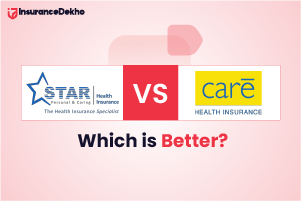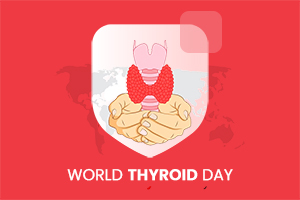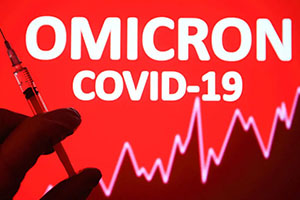

- Tax BenefitUp to 75000**
- Claim SupportEveryday 10AM-7PM
- 45 Lacs+Happy Customers
*Standard Terms and Conditions Apply.
**Tax benefits are subject to changes in Income Tax Act.
What is Down Syndrome?
Down Syndrome is a genetic disorder that occurs when a child is born with an extra chromosome. A child born with down syndrome has an extra copy of chromosome 21, resulting in several health problems. Typically, a child has 23 pairs of chromosomes, where one in each pair comes from the father and the other from the mother. However, a child with down syndrome has an extra copy, which means there are 3 copies, instead of the usual two.
This abnormal growth and division of cells happen when a child is unborn, i.e. inside the mother’s womb. Overall, this abnormal division leads to several health issues and even becomes fatal at times. It is important to note that down syndrome is a lifelong disorder and needs to be taken care of at the earliest.
Symptoms of Down Syndrome
Some of the common symptoms of Down Syndrome are listed below:
- Flattened head
- Small ears
- White spots on the iris of the eye
- Small head
- Short neck
- Poor muscle tone
- Bulging tongue
- Small hands
- Small feet
- Poor muscle tone
- Loose joints
- Short stature
In addition to the above-mentioned physical symptoms, several other behavioral symptoms are visible in a child with down syndrome. This includes delayed development in speech, sleep difficulty, impulsive behaviour, short attention span, delay toilet training, and more.
Types of Down Syndrome
There are different types of Down Syndrome that you should know about:
- Trisomy 21: This is the most common type of Down Syndrome in which the cells have three different copies of chromosomes. It is found that 95% of the total number of cases of Down Syndrome falls under this category.
- Translocation Down syndrome: Only 3% of the total cases of Down Syndrome fall under the category of Translocation Down syndrome. In this the extra 21 pairs of chromosomes is present but not as a copy, instead, it is translocated or attached.
- Mosaic Down syndrome: Another type of Down Syndrome is Mosaic Down syndrome which accounts for only 2% of down syndrome cases. This is a rare type of down syndrome where only some cells have this extra copy of the chromosome, while the others have the usual two copies only.
However, it is difficult to categorise these types based on the symptoms as almost all the symptoms remain the same in all the three types mentioned above.
Causes of Down Syndrome
Down Syndrome is not an inherited disease and mostly takes place due to the wrong division of the cells inside the mother’s womb. While there are no common causes of down syndrome, it is found that when a woman gets pregnant after the age of 35 years, then there is a high chance of down syndrome in the child. Moreover, in the case of Translocation of Down Syndrome, the chances of Down Syndrome being passed from parent to child is high. Even parents with one child who has down syndrome have a higher risk of having another child with down syndrome.
Risks of Down Syndrome
Certain health complications arise when a child is born with down syndrome. Listed below are the common risks associated with down syndrome:
- Most children born with down syndrome may have several heart defects which can often become life-threatening.
- Another way in which down syndrome affects the health of an affected child is that it leads to gastrointestinal defects like digestive problems. This includes gastroesophageal reflux, GI blockage, abnormality of the esophagus, and more.
- Due to the abnormal division of cells and an extra copy of chromosomes, a child with down syndrome is also at an increased risk of obesity.
- Autoimmune disorders are also common among children with down syndrome. This disorder in the immune system of the child also increases the risk of critical diseases like cancer, and others. The risk of leukemia is also higher amongst children with down syndrome.
- Sleep apnea, a type of sleep disorder in which breathing stops and starts can affect a child with down syndrome.
- Other health problems that are at a higher risk for a child with down syndrome include dementia, spinal problems, vision problems, hearing problems, and more.
Thus, as the risk of the above-mentioned health issue is higher for children with down syndrome, it is advisable to consult a medical practitioner regularly for the same.
Diagnosis of Down Syndrome
There are two types of tests: screening tests and diagnostic tests that are conducted during pregnancy to detect down syndrome. In the screening test, blood tests and other tests are performed to check the presence of different substances in the mother’s blood. This screening test helps in identifying the risks of delivering a child with down syndrome. On the other hand, the diagnostic test is used to confirm down syndrome. These tests include the Chorionic villus sampling test, Amniocentesis, and Percutaneous umbilical blood sampling.
Treatment of Down Syndrome
As already stated, Down Syndrome is a lifelong health condition, thus there is no cure for the same. However, regular consultation with medical practitioners can certainly help in reducing the risks of down syndrome. Moreover, a child with down syndrome can also be involved in physical therapies and others that will be helpful in the proper development of speech and others. Moreover, it is also advisable to purchase a health insurance plan for a child with down syndrome as that will help to provide financial assistance in case any health emergency takes place.
Is Down Syndrome Covered in Health Insurance?
Yes, as of now, there are a few health insurance companies that provide coverage for down syndrome in their health insurance plans. These plans include Bajaj Allianz Women Specific Critical Illness, Care Joy Maternity Insurance, and others. However, while buying health insurance plans that cover down syndrome, it is important to check whether there is a waiting period to get the coverage or not.
Health Insurance Calculator
Whom do you want the insurance for ?
Where do you live ?
Choose required Coverage for yourself?
Health Insurance Coverage Calculator
Who do you want to insured ?
- Individual
- Couple
- Family
- Parents
Age of eldest insured member ?
Where do you live ?

*Tax benefits are subject to changes in Income Tax Act.
















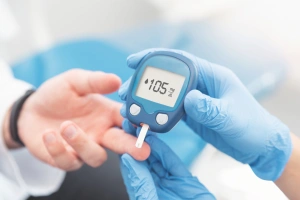




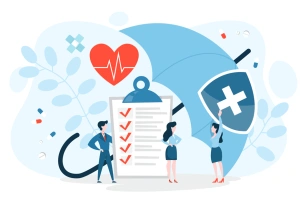

.jpg)





























